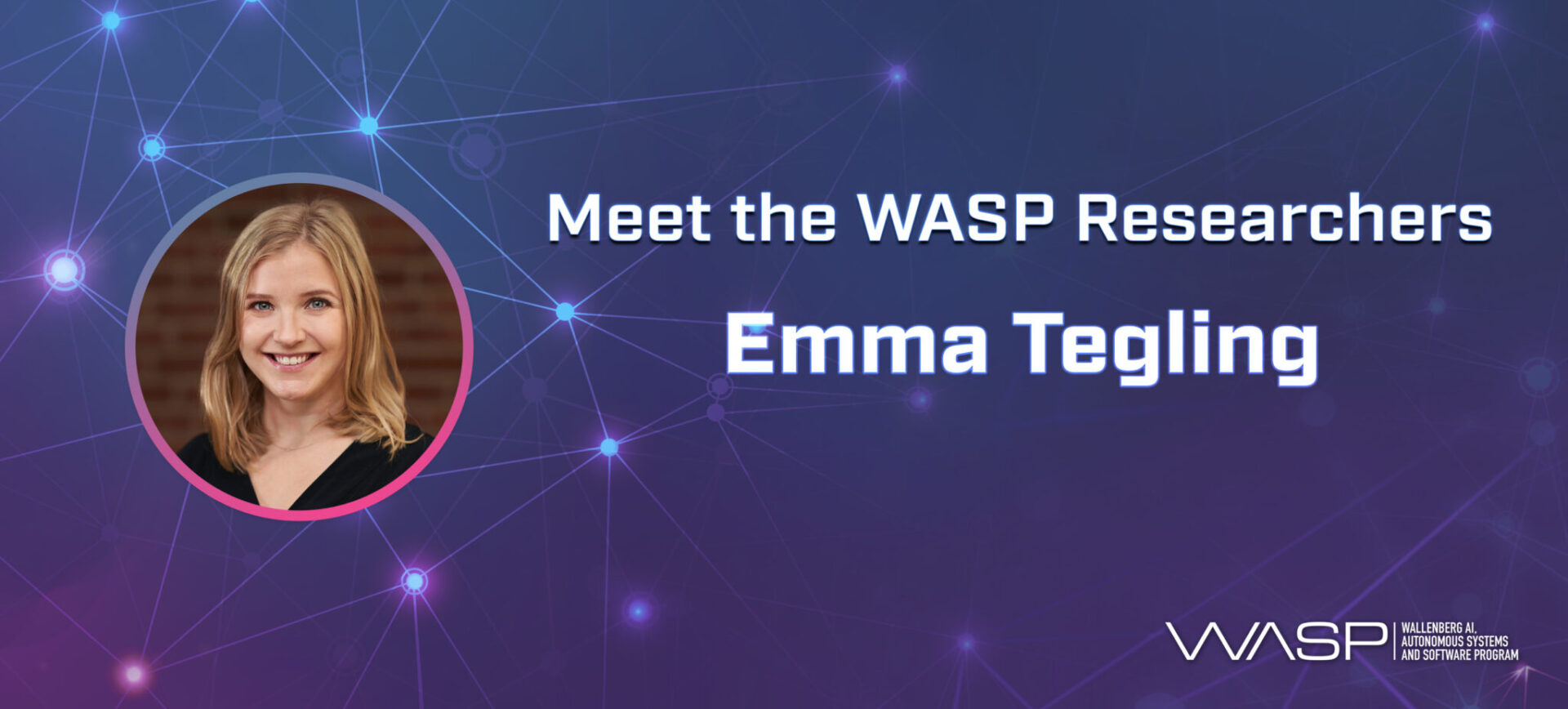WASP is very proud to have so many excellent researchers involved in the program. More than 450 researchers, reaching from assistant to senior professors, are affiliated with WASP. Some are international recruitments who have come to Sweden to join the WASP community, others are already well established in the Swedish academic system.
Through a series of portraits, you get the opportunity to get to know them a little bit better.
Meet Emma Tegling
Emma Tegling is a WASP Associate Professor (Senior Lecturer) in automatic control at the Department of Automatic Control at Lund University. Dr Tegling was recruited by WASP in 2021.
What is your position/role in WASP?
WASP Recruited Faculty.
Why did you choose to join WASP?
WASP granted me a unique opportunity to come back to Sweden and kickstart my career with my own research group.
What are the benefits you see in WASP?
Aside from the obvious — generous research funding — I most appreciate the contact network within both academia and industry. The ambitious graduate school with international exchange opportunities is great for the Ph.D. students.
Briefly describe your research topic.
Large-scale complex networks, such as electric power networks, traffic systems, or even social or financial networks, rely on the individual control decisions and local feedback interactions between many, many autonomous subsystems or agents.
In my group, we want to understand how these local feedback interactions should be designed for the network as a whole to behave as it should. For example, we want to guarantee stability, robustness and resilience. Here, we often need to consider both dynamical and network topological aspects of the systems.
We also seek to explain and model large-scale phenomena arising in large social networks (such as consensus, echo chambers, polarization) through small-scale interactions over sociotechnical networks.
In what way can your research be of importance to our society in the future?
My research helps explain what is feasible and not when designing large networks that rely on local feedback and control decisions. For example, we can show that it is fundamentally difficult to control a long chain of vehicles driving close to each other. This highlights a need for, for example, communications infrastructure that enables additional feedback.
I also hope that our research on sociotechnical network systems can help us understand how modern technology is shaping our ever more interconnected society.
For more information about Dr Tegling, see https://portal.research.lu.se/en/persons/emma-tegling
Published: March 22nd, 2023
[addtoany]


